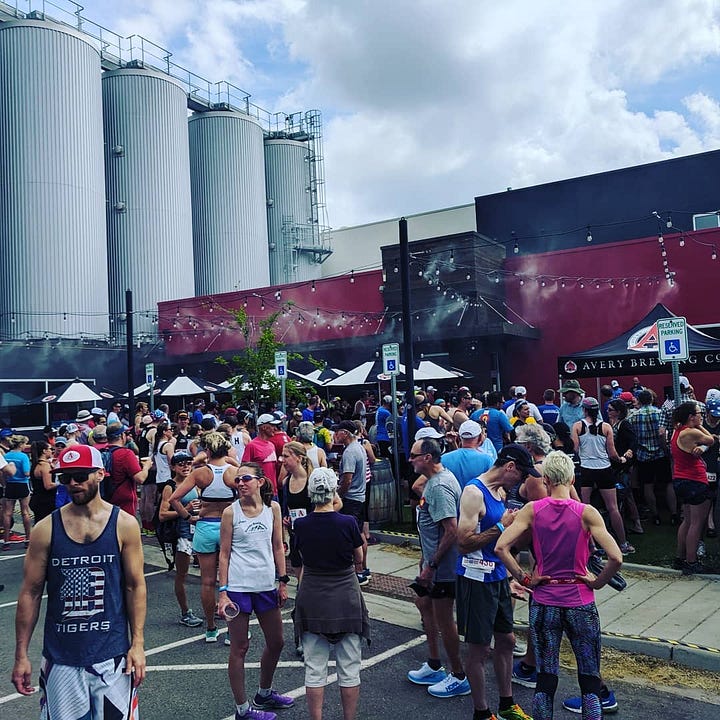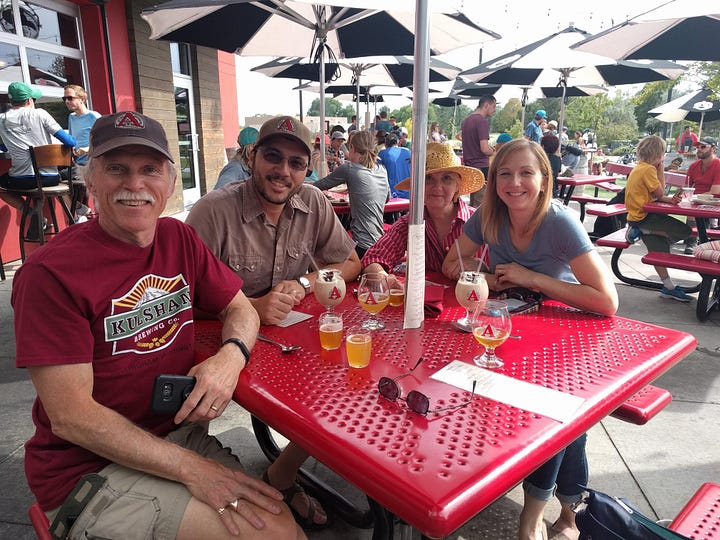Courageous Hospitality: Risky Business
Week 1: Risking Trust, Breaking Scripts, and Making Space for Real Connection
There is an important difference between entertaining and hospitality. Entertaining, whether at the theater or in someone’s home, is often about control. The host or director has a vision for how you, the guest or consumer, should experience the event, and they shape every detail to fit that vision.
Hospitality, on the other hand, trusts that the guest can express their needs, that the staff can respond creatively, and that a good experience is co-created. This willingness to trust others makes hospitality inherently courageous.
Priya Parker, author of The Art of Gathering, was interviewed on the Design Matters Podcast and said, “When anybody in a group or in a room tries to take a risk that helps people meaningfully connect despite the awkwardness, I’m always very moved and very grateful.” She reminds us that real connection requires people willing to risk awkwardness and break the social scripts that keep us comfortable but disconnected. Even the act of asking for what you need is courageous but in a space shaped by true hospitality, it’s not only welcome, it’s necessary.
Laura de la Mar says it plainly: we don’t need more scripts or surveys, we need people willing to ask and willing to share. Hospitality invites mutual courage: the courage to reveal, to listen, and to adapt.
Hospitality is inherently risky because it calls for authenticity, openness, and curiosity. This mutuality can feel disruptive in cultures shaped by rigid norms and predictable roles.
On Defining Hospitality with Dan Ryan, Ron Swidler — creator of the Hotel Tomorrow Project — speaks to this when he says, “We need to keep innovating. We need to keep up with the expectations of guests, expectations of clients, new technologies in the way we do things. And so all of that leads us to this kind of curiosity, this need for creativity, and this courage to support it.”
Hospitality cannot grow stale. It must continually respond to who is showing up: both the guests and the employees. Swidler emphasizes that innovation means thinking outside the box, trying new things, and having the courage to risk failure.
As he says: “Creativity takes courage, innovation takes courage.” Swidler’s drive to reinvent hotel experiences comes from an insatiable desire to enliven hospitality for guests, employees, and partners alike. He models the courage to trust: asking guests what they really want, trusting employees to respond creatively, and letting go of the control that leaders so often cling to.
“And you know, what a gift, to say, ‘We believe in you’ — one of the most courageous things.” His team’s freedom and trust started with the courage of those who first believed in him — hospitality flowing forward.
Horst Schulze, co-founder of the Ritz-Carlton, echoes this: “Empowerment is the courage to trust your people.” Empowerment is a risk because it means letting others shape the experience in real time.
I saw this firsthand every busy Saturday at Avery Brewing. As a bartender or server, you had to be ready for anything. Creative, adaptable, guest-focused. But the courageous nature of hospitality is multi-layered. As a manager, I had to trust our staff to be creatively courageous and “unreasonable” in their hospitality. They trusted me in return and knew I had their backs. And our guests, too, needed courage: courage to ask “stupid” questions, admit they liked Coors Light, or speak up about allergies. Our mutual courage created the space for genuine, unreasonable hospitality.
So when an international tour bus rolled up just after the sales team brought in their top account (unannounced), all the brewhouse tours were full, a dog on the patio threw up, a group of beer enthusiasts just ordered half the menu in tasters, and someone is celebrating their 20th anniversary (they named their daughter Avery) — and all that happens at once — our response was always: “We got this.”
It was unreasonable to expect anyone to handle that chaos with grace. But we did because we trusted each other, trusted our guests, and supported each other fiercely.


Will Guidara says, “‘It might not work’ is a terrible reason not to try an idea.” We never said ‘it might not work’ on those Saturdays (and Fridays, and Sundays). We leaned into the chaos with courage and creativity, trusting our hospitality instincts and staying grounded in the mission to make someone’s day. Guidara reminds us that true hospitality takes risk and boldness - not just facing hard shifts, but staying open, adaptable, and willing to respond to whoever shows up.
It’s easy to stick to the script but far harder to be present, creative, and trusting in the messy, unpredictable moments.
Hospitality, whether at a gathering or in the industry, demands courage. It requires us to risk, to empower, to trust, to innovate. Anthony Bourdain showed that culinary brilliance means risking failure to surprise and delight, vulnerability and creativity are acts of courage. Fearless in the face of the impossible.
If, as Guidara says, hospitality is about breaking down barriers, then it depends on boundary-pushing courage. My own journey taught me this well: when I stepped into ministry and found myself walking the Tenderloin at night to offer pastoral care, I felt prepared. I trusted those I met, stayed curious and adaptable, and remained present through discomfort. As someone who isn’t naturally outgoing, most interactions still require courage. But through hospitality I learned that courage is not just about surviving another round of small talk, it’s about risking transformation through others.
Think about your courage in hospitality. You may not have worked at a busy brewery, but you know what it means to be courageous in the face of the impossible, to seek a creative response rather than just doing what’s always been done. Step out of the scripts, the norms, try responding creatively, spontaneously, courageously!
Where in your work or daily life are you invited to take a risk for the sake of true connection?
Who do you need to trust more deeply: a colleague, a guest, yourself?
What social scripts might you rewrite to make room for real hospitality?
What does courageous hospitality look like for you this week?



